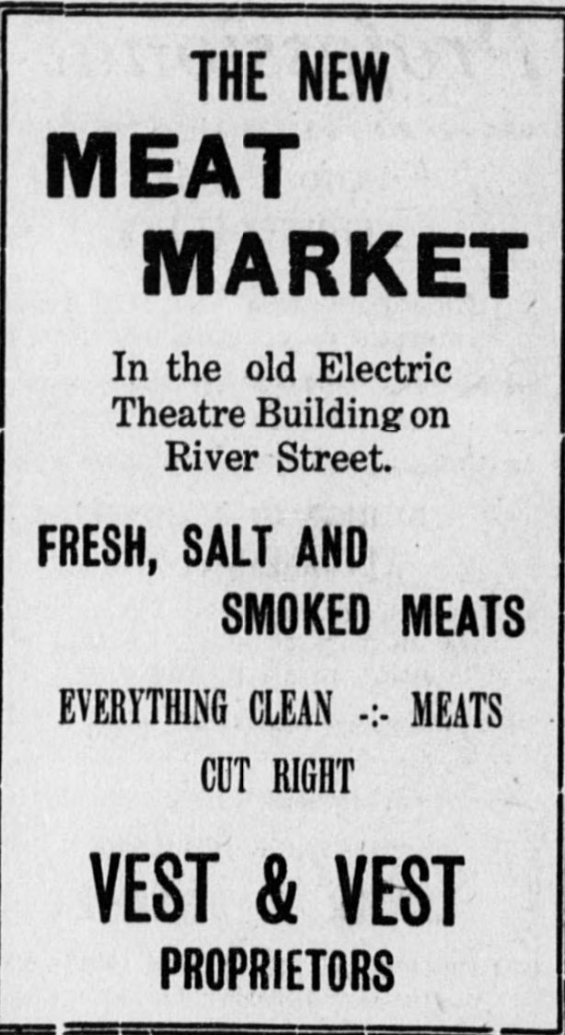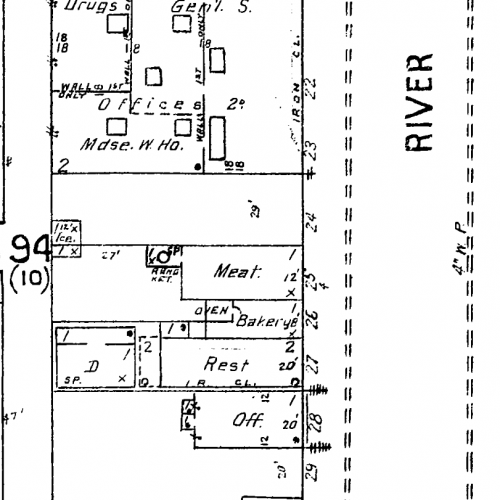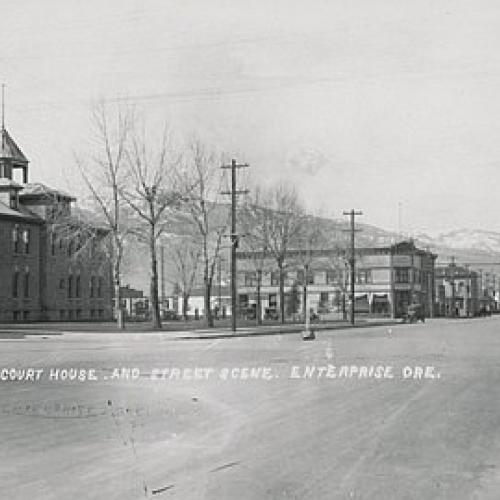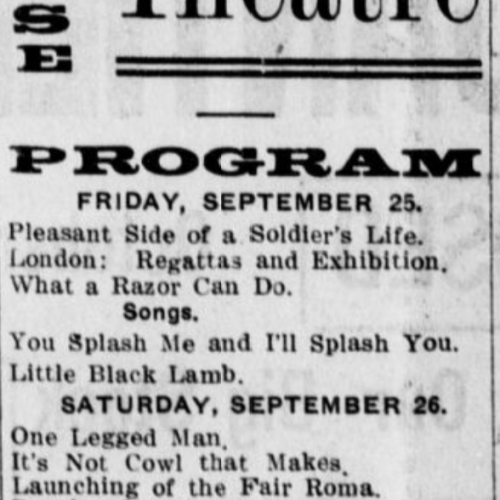The Electric Theater was first opened in July of 1908 by Cull Smith and his associate who ran the establishment, P.N. Schrader. It is unclear through digitized newspapers whether or not the theatre was open prior to this date, however, a clipping mentions that the theatre was “nicely fixed over for the pur-pose,” not built new for the occasion1. The same clipping mentions that the filmhouse was opening with a unique quality: that it would possess a motion picture machine that was “the first of its kind west of Denver, it being absolutely fireproof.” Though claimed by the theater management, this is very unlikely to be true, as many urban locations had a much easier time obtaining these machines, as well as the newer models. Pair this with the fact that mentioning the safety of a theatre was pivotal in obtaining and maintaining strong audiences in the industry, as many were conscious of the dangers present in movie-going. Lastly, the claim to fame for the Electric Theatre in Enterprise is that this was the so-called “headquarters” for a circuit that was created by Schrader and Smith, managed by Smith from an office he ran from the small town. By no means was this rare for this time period, but what is interesting is the locale in which the circuit resides. The area in Northeast Oregon was not that populated, but by ensuring you have some capital in each of the larger towns in this area, one can be sure they would strike up some amount of consistent business by bringing films to the more rural locations when not many other theatres were around to compete.
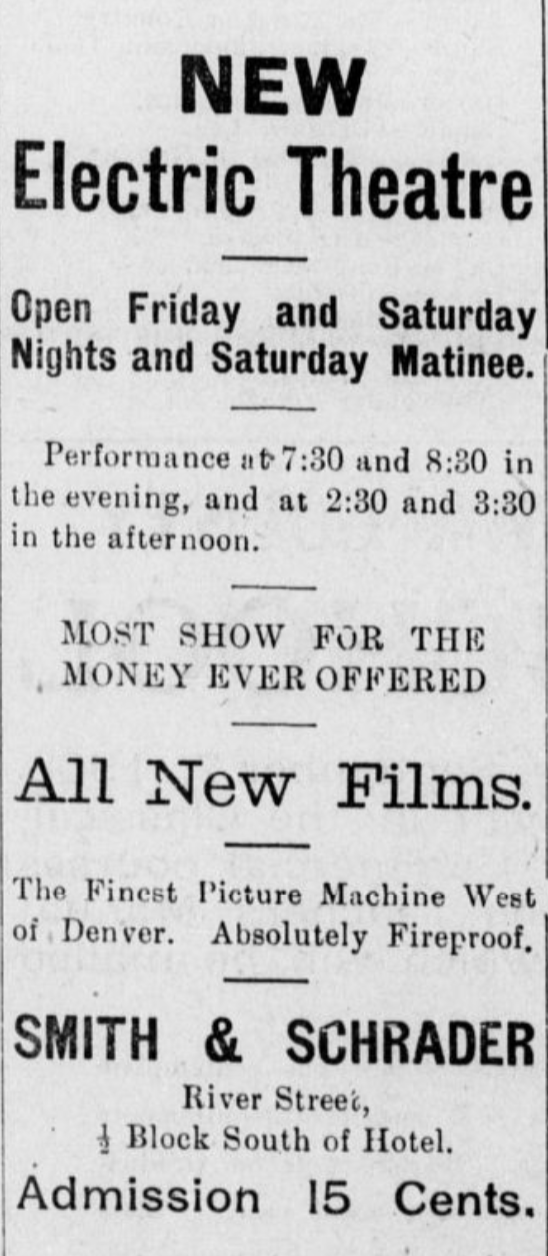
Proprietors Smith and Schrader were often commended for their success in running a functional and entertaining establishment for the people that attended any of their circuit locations. A newspaper clipping after a few months of work from the theatre mentions that the location is “receiving a constantly increasing patronage,” and that “a longer and better show for the mon-ey is given by Messrs. Smith and S[c]hrader than is customary in mov-ing picture theaters”2. A typical bill runs as follows, based on an ad from The News Record: 3 moving pictures, “Pleasant Side of a Soldier’s Life,” “London: Regattas and Exhibition” and “What a Razor Can Do,” along with two other illustrated songs. Then, on the next day, 5 pictures, “One Legged Man,” "It’s Not Cowl that Makes,” “Launching of the Fair Roma,” “Reprieved” and “Selfish Man” and 2 songs to close3. Though, some of the more interesting programming featured a Strong Man, named Samson and the Dieppe Circus of 1908.
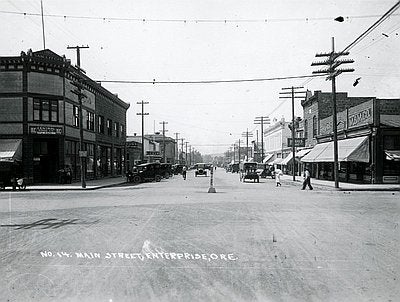
Through to its end, it seems as though the management at the Electric Theatre always sought out to ensure a quality experience at the location. Roughly a month prior to the perceived closing of the theatre, there was a full article, rather than a simple block ad, that detailed a future selection of films for showing. In describing the films the writer states that the Electric Theatre is presenting an “entirely new and A1 class of films and songs...the expense to the management is doubled there-by but they are determined to give an entertainment of a character that will merit and receive liberal support”4. I believe this is key in detailing the history of the Electric Theatre and that the intent behind the presentation of films was for entertainment of the clients that attended the shows, seemingly less so about the money derived from the practice. The Electric Theatre seemed to prosper up until roughly this point, where it is unclear exactly when the theater closed, however it was officially handed over to the Vest Brothers who developed the old theatre location into a meat market in October of 19095. This meat market is where I could find the physical location and depiction of the building/plot itself, as the Sanborn database did not carry the years that the Theatre was active.
